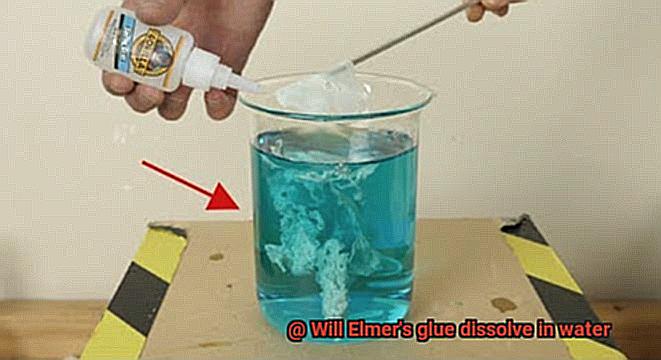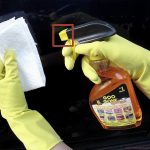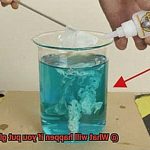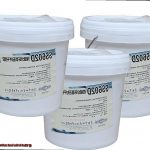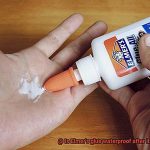Have you ever found yourself in a sticky situation, quite literally, where you accidentally spilled Elmer’s glue on your favorite shirt or pants? Or maybe you’ve been curious about whether Elmer’s glue can dissolve in water. As someone who has experienced both scenarios, I’m happy to report that Elmer’s glue does indeed dissolve in water. But why is this such a big deal?
Elmer’s glue has been a staple adhesive for artists, craft enthusiasts, and children in the classroom for over 70 years. Its versatility and ease of use make it a go-to product for many people. However, what sets it apart from other adhesives is its unique ability to dissolve in water. This feature alone opens up a whole new world of possibilities for users. For instance, it makes cleaning up after a craft project or art session much more manageable – especially for parents and teachers.
In this blog post, we’ll dive deep into the science behind Elmer’s glue and why it dissolves in water. We’ll also take a closer look at the different types of Elmer’s glue available and whether they all have the same solubility properties. Additionally, we’ll share some tips on how to remove dried glue from clothes or surfaces without causing any damage.
So grab your lab coats and magnifying glasses as we embark on an exciting journey into the fascinating world of Elmer’s glue and water.
What is Elmer’s Glue?
Contents
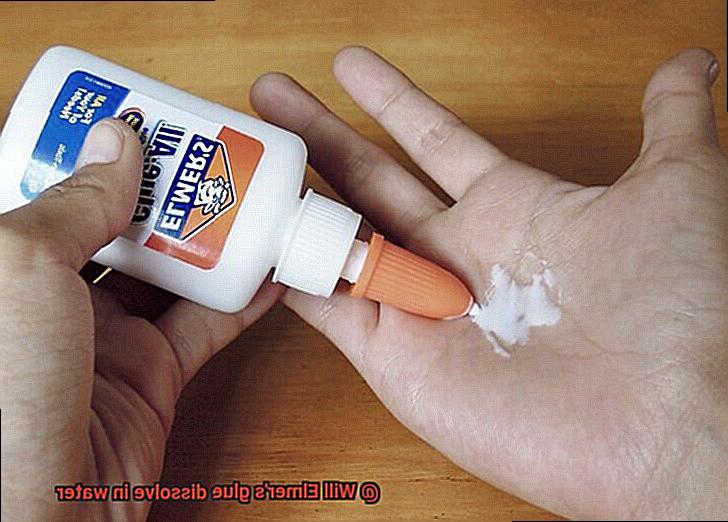
If you’re looking for a versatile and reliable adhesive for your next project, Elmer’s glue is the way to go. This popular brand of white school glue has been a go-to adhesive since 1947 and continues to be trusted by generations of students, teachers, and crafters.
So what makes Elmer’s glue so special? It’s made from a combination of water, polyvinyl acetate (PVA) resin, and other additives. PVA is a synthetic polymer that is commonly used as a binding agent in many types of adhesives. When you apply Elmer’s glue to a surface, the water in the glue evaporates, leaving behind a thin film of PVA that bonds the two surfaces together.
Elmer’s glue is not only reliable but also versatile. It comes in different formulas such as washable, no-run, and clear to cater to various needs and preferences. If you’re working on a project with young children who tend to make messes, washable Elmer’s glue can be easily cleaned up with water.
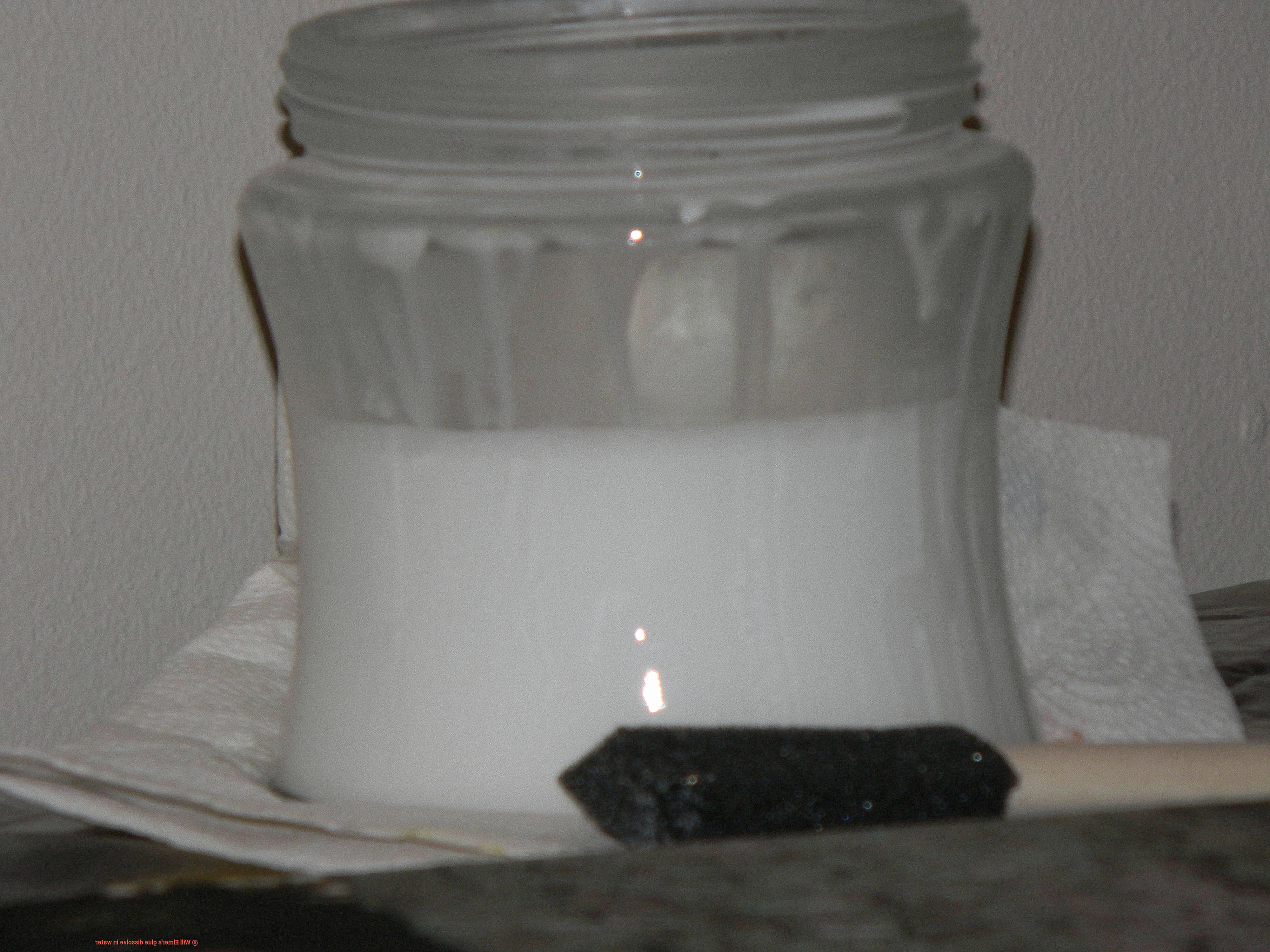
Moreover, Elmer’s glue dries clear, making it ideal for use in a variety of crafting projects such as making slime, paper mache, and other DIY projects. Plus, it’s non-toxic and safe for kids to use.
But what about the age-old question: can Elmer’s glue dissolve in water? Well, it depends on the type of Elmer’s glue you’re using. Elmer’s School Glue, commonly used by students for their projects, is water-based and dissolves quickly in water. However, other types like Elmer’s Carpenter’s Wood Glue and Epoxy Glue are not water-soluble but can still be weakened by prolonged exposure to moisture.
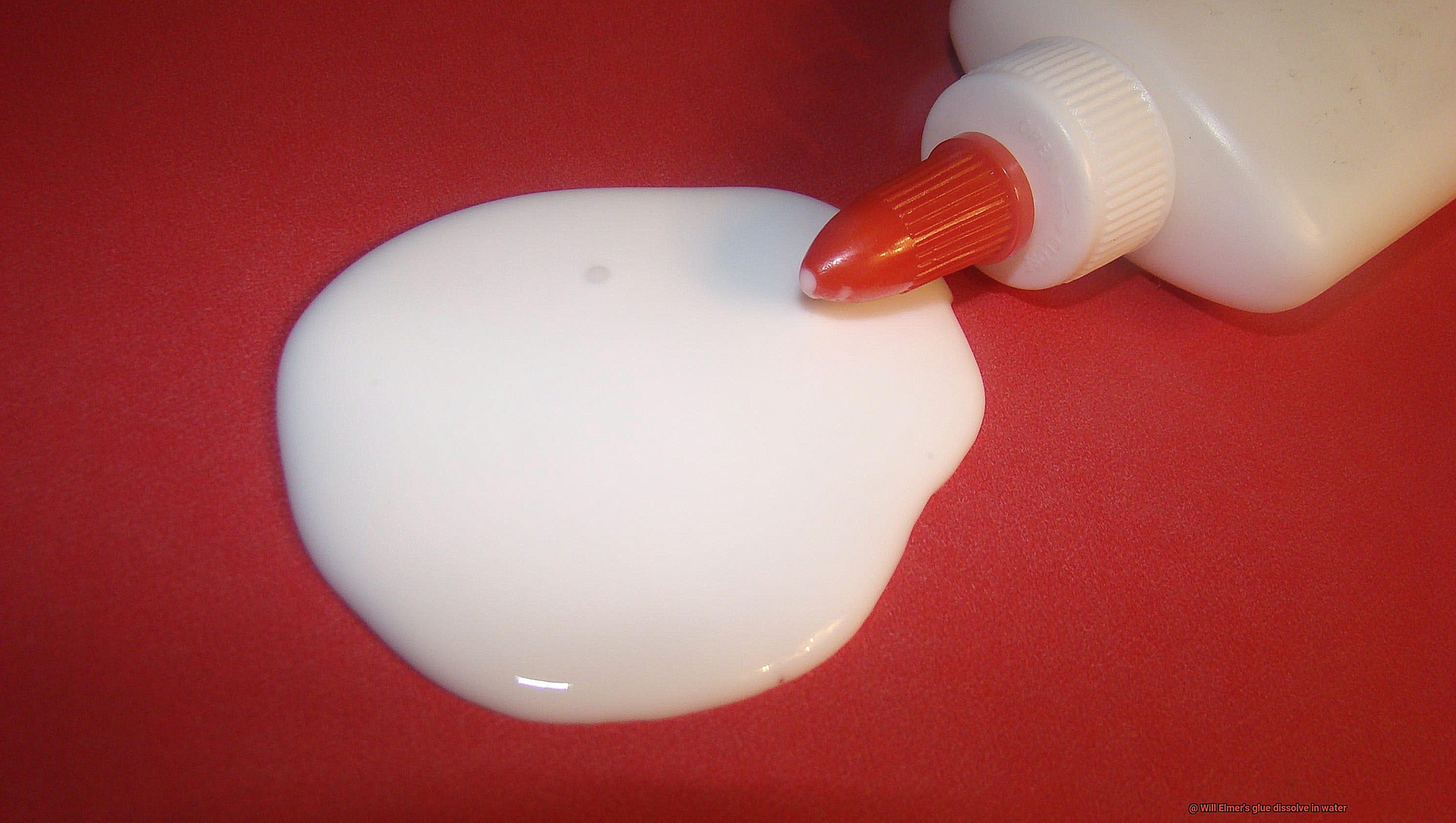
Types of Elmer’s Glue
With a history dating back to 1947, this popular brand offers a range of adhesives that can meet your needs.
The most common type of Elmer’s glue is the white school glue. This non-toxic glue is water-soluble and perfect for paper-based projects like scrapbooking or school projects. It’s easy to clean up, making it a great choice for kids’ crafts too.
Need a clear glue that dries transparently? Elmer’s has got you covered with their clear glue. Unlike the white school glue, this type of glue is not water-soluble, ensuring your project stays intact. Plus, it’s perfect for attaching small embellishments and beads to surfaces.
If you’re looking to add some pizzazz to your project, Elmer’s specialty glues are the way to go. They have glitter glue, washable paint glue, and even glow-in-the-dark glue. These types of glues are perfect for adding special effects and making your project stand out.
For tougher projects such as woodworking or automotive repairs, Elmer’s offers a range of adhesives such as spray adhesive, wood glue, and epoxy adhesive. These adhesives are designed to bond surfaces together permanently and withstand heavy use.
Does Elmer’s School Glue Dissolve in Water?
Composed of polyvinyl acetate (PVA) and water, Elmer’s School Glue can easily dissolve when more water is added.
The science behind this is fascinating. When water is added to the glue, it breaks down the PVA molecules, resulting in the glue dissolving. This makes Elmer’s School Glue an excellent option for projects that require easy clean-up or a temporary hold.
However, it’s important to note that even though Elmer’s School Glue dissolves in water, it still provides a robust bond when it dries. The adhesive is perfect for paper-based or crafting projects, but if your project will be exposed to moisture or water, it may not be the most durable option.
Does Elmer’s Carpenter’s Wood Glue Dissolve in Water?
Elmer’s Carpenter’s Wood Glue is a popular adhesive among woodworkers due to its exceptional strength and time-tested bond. However, while it is water-resistant, it is not completely waterproof. If you expose it to water for an extended period, the glue will begin to soften and lose its strength.
The reason for this is that Elmer’s Carpenter’s Wood Glue is composed of a combination of water and a polymer, which is a type of plastic. When water penetrates the glue, it weakens the polymer and causes the glue to lose its hold. The time it takes for the glue to dissolve in water depends on several variables, such as the level of exposure to water, temperature, and type of wood.
It is essential to note that Elmer’s Carpenter’s Wood Glue is not recommended for outdoor projects or areas where it may come into contact with water frequently. In these situations, you should use a waterproof glue that can withstand exposure to moisture and prevent damage to your project.
Does Elmer’s Epoxy Glue Dissolve in Water?
Elmer’s Epoxy Glue is a fantastic two-part adhesive that’s perfect for creating a strong and durable bond between materials such as wood, metal, ceramic, and many others. But what happens when it comes in contact with water? Will it dissolve?
The answer is a resounding no. Once fully cured, Elmer’s Epoxy Glue is resistant to water and other liquids. The curing process chemically bonds the two parts of the glue together, creating a bond that can withstand exposure to water without dissolving. This feature makes it an excellent option for projects that require resistance to water, like boat repairs or aquarium building.
It’s important to note that while Elmer’s Epoxy Glue is resistant to water, it isn’t entirely waterproof. Therefore, if the bond is exposed to water for an extended period, the adhesive bond may weaken or fail. For instance, if you plan on using it for an outdoor project that will be consistently exposed to rainwater or other natural elements, you may want to consider additional waterproofing options.
Despite its lack of complete waterproofing, Elmer’s Epoxy Glue remains a reliable option for many different types of projects. It is also resistant to most chemicals and solvents, making it a popular choice for industrial applications requiring strong and durable bonds.
Can Prolonged Exposure to Moisture Weaken Certain Types of Elmer’s Glue?
Elmer’s glue is a versatile adhesive that can work wonders on a range of projects, from crafting to construction. However, prolonged exposure to moisture can be a real challenge for certain types of Elmer’s glue. So, the question remains: can prolonged exposure to moisture weaken certain types of Elmer’s glue?
Not all Elmer’s glues are created equal, and some are designed to be more water-resistant than others. For example, Elmer’s Carpenter’s Wood Glue Max is specifically formulated to resist water and hold up well even in damp environments. It’s an excellent choice for outdoor woodworking projects or repairing items like boats or furniture that may be exposed to moisture.
On the other hand, Elmer’s Glue-All Multi-Purpose Glue is not waterproof and can weaken if exposed to water for too long. It may not be the best choice for projects that will be exposed to moisture on a regular basis.
Even if you opt for a water-resistant or waterproof glue, it’s still essential to protect it from excessive moisture. This could mean storing the glue in a dry location or using a sealant or waterproofing agent on top of the glued surface if necessary. It’s worth noting that even water-resistant or waterproof glues can lose some of their strength over time if constantly exposed to water.
To ensure your project holds up over time, it’s vital to take care when using any type of adhesive in damp or wet environments. Choose the right glue for your project and take steps to protect it from moisture. Regularly monitor your project and make any necessary repairs or reinforcements as needed.
5l7ZPu9ne1o” >
Conclusion
To sum up, Elmer’s glue has been a trusted adhesive for generations of crafters, teachers, and students. Its unique ability to dissolve in water makes it an excellent choice for projects that require easy clean-up or temporary holds. However, not all Elmer’s glue types are water-soluble.
Elmer’s School Glue is the most common type used by students and dissolves quickly in water. In contrast, Elmer’s Carpenter’s Wood Glue and Epoxy Glue are not water-soluble but can be weakened with prolonged exposure to moisture.
Choosing the right Elmer’s glue type for your project is crucial, and you may need to take steps to protect it from excessive moisture. Even waterproof glues can lose their strength over time if constantly exposed to water.
Overall, Elmer’s glue remains a reliable option for various projects due to its versatility and ease of use.

